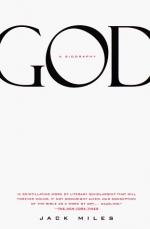
|
| Name: _________________________ | Period: ___________________ |
This test consists of 5 multiple choice questions, 5 short answer questions, and 10 short essay questions.
Multiple Choice Questions
1. What do these references do?
(a) They encourage readers to learn more about what is referenced.
(b) They do not add to the biography of God.
(c) They make the book more confusing for those who do not know the sources.
(d) They enrich the experience for those who grasp comparison, but do not demand look-up for those who do not.
2. With what is God satisfied regarding various nations?
(a) Ignoring them.
(b) Assimilating them into the Israelite culture.
(c) Destroying them.
(d) With manipulating nations like chess pieces.
3. How does God seem to be taking up ethical matters?
(a) He has a strategic plan for dealing with ethical manners.
(b) On a case-by-case basis.
(c) In a zero-tolerance policy.
(d) He does not care about ethics.
4. What does God give to himself as an out from the broken covenant?
(a) "Secret things."
(b) "Scary things."
(c) "Superficial things."
(d) "Special things."
5. What does God not do as he is creating the world and animals?
(a) He does not talk about himself or his motivation for the sudden action.
(b) He does not make all the animals.
(c) He does not create light.
(d) He does not feel confident in his creations.
Short Answer Questions
1. How is the Hebrew God different from those of Greek mythology?
2. Although his story, previously reserved to Jewish and Christian believers, is the bedrock of what civilization?
3. What is another name for the Ten Commandments?
4. What is different about these two texts?
5. How does God show his power to Egypt?
Short Essay Questions
1. Under Joshua, what does Israel do?
2. By using foreign nations to punish his people, how is God opening the door to other nations?
3. Whose statement does Miles raise at the end of the keynote? What is that statement?
4. How does the frightful Yahweh act towards the man and the woman after they are punished and before they are expelled from the garden?
5. What does God invite readers to do, at which critics might scoff? Why?
6. What belief continues to set Western civilization apart from, for example, the Japanese?
7. How is God compared to an immature individual?
8. How does God deal with humans?
9. How can one gain insight into the Western ideal of character without being Jewish or Christian?
10. How does Miles disagree with systematic theologians and the character and actions of God?
|
This section contains 633 words (approx. 3 pages at 300 words per page) |

|




